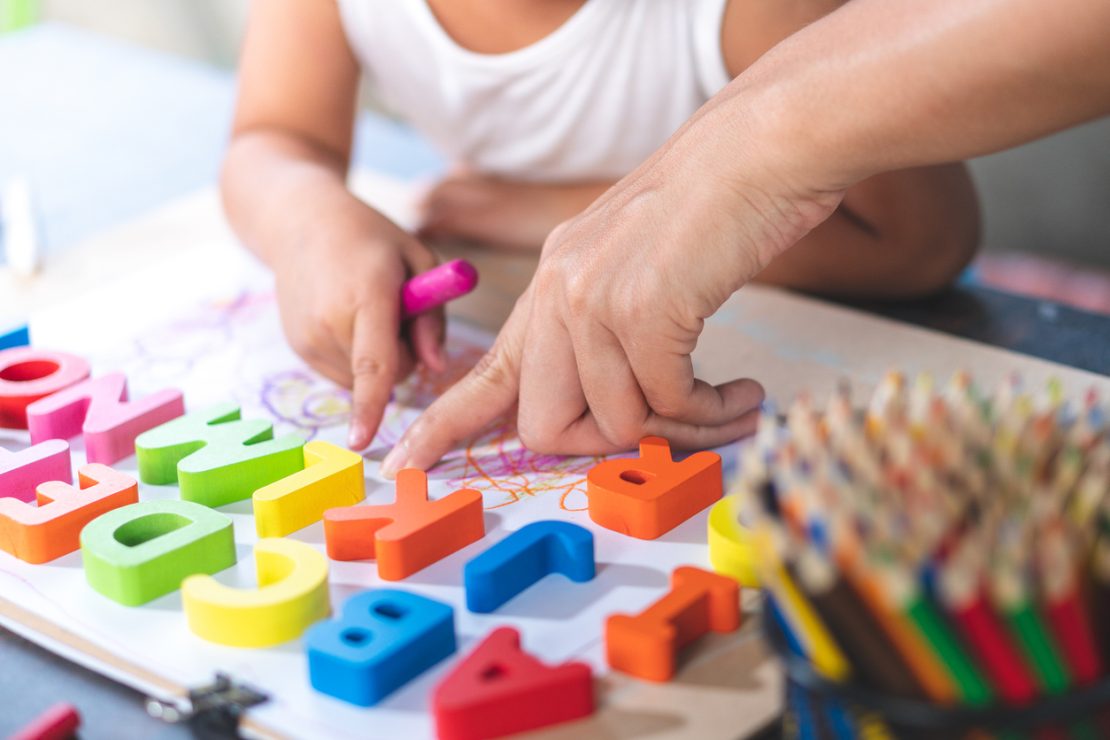
How can Tutoring Help your Child with Dyslexia?

Students with dyslexia typically struggle with decoding words and reading fluently. They may also have difficulty with spelling and expressing their thoughts effectively when writing. As students progress through school, these skills become increasingly important and can affect nearly every subject. Help your child thrive with dyslexia tutoring that is customized to their individual needs. How can dyslexia tutoring help your child?
Decoding Basic Words
Many students struggle to decode basic single syllable words when reading. They may have difficulty learning sound-letter relationships, including short vowels sounds, and often struggle to blend these sounds together to form words. This challenge can create frustration and lead to poor self-esteem. Dyslexia tutoring or, more specifically, Orton Gillingham tutoring using the Orton Gillingham technique, can help your child strengthen these key skills. This multi-sensory approach to tutoring engages the visual, auditory, and tactile/kinesthetic modalities and can help students master these foundational reading skills.
If your child struggles to learn the names of the letters and their corresponding sounds, Orton Gillingham tutoring can help build these skills, starting at a basic foundational level. For example, a tutor might hold up a flash card that has the lower case letter “a” on the front and the key picture of an apple on the back. The tutor might say to the student, “This is the letter a, like apple, it makes the sound /a/.” The student would then repeat that language out loud along with the Orton Gillingham tutor and then say it independently on their own. Next, the tutor may move onto skywriting and the tutor would write in the sky with their finger, “around, up, and down”, saying the formation of the lower case letter “a” aloud. Then the student would write the same letter in the sky along with the teacher and then independently on their own. Next, the Orton Gillingham tutor may take out a tray of colored sand or shaving cream and practice the same writing exercise in the sand or cream, again saying the formation of the letter aloud as they write it. Next, the student might complete Orton Gillingham workbook pages and then do exercises where they blend sounds together to form words, using tools such as flash cards or magnetic tiles. The more multi-sensory the Orton Gillingham tutoring can be, the better!
Decoding Multi-Syllabic Words
Some students can accurately read basic, single syllable words, but struggle to decode multi-syllabic words. An Orton Gillingham tutor can teach students strategies for breaking down and decoding multi-syllabic words. For example, an Orton Gillingham tutor may teach the student what a compound word is: two little words that are combined to form a big word. They might learn that certain words have endings, like est, ed, ing, or ful, and how to syllabicate these types of words. They might learn the “rabbit” syllabication rule, where the word is split between the two middle consonants, like in the word rabbit. By learning how to break down longer words into their smaller parts with Orton Gillingham tutoring, students can learn to more accurately decode longer, multi-syllabic words.
Reading Fluency
Many students, especially those with dyslexia, exert so much energy into decoding words that their reading fluency is slow. Learning to accurately decode words through Orton Gillingham tutoring can help students develop their reading fluency, but your child’s dyslexia tutor can also use specific strategies, like the choral reading technique, to build their reading fluency skills. The dyslexia tutor may select a passage form a book and use this strategy as follows:
- Your child reads the passage aloud to the tutor as an initial read.
- The tutor reads the same passage aloud to your child to model good fluency.
- Your child reads the same passage aloud WITH the tutor, trying to keep up with their fluency.
- Your child reads the same passage aloud one more time, and their dyslexia tutor empowers them with the improvement in their fluency!
As students move through school, they will be required to read and write increasingly complex material. Dyslexia tutoring can help your child develop stronger reading and writing skills and enable them to thrive as the demands of school continue to increase.
